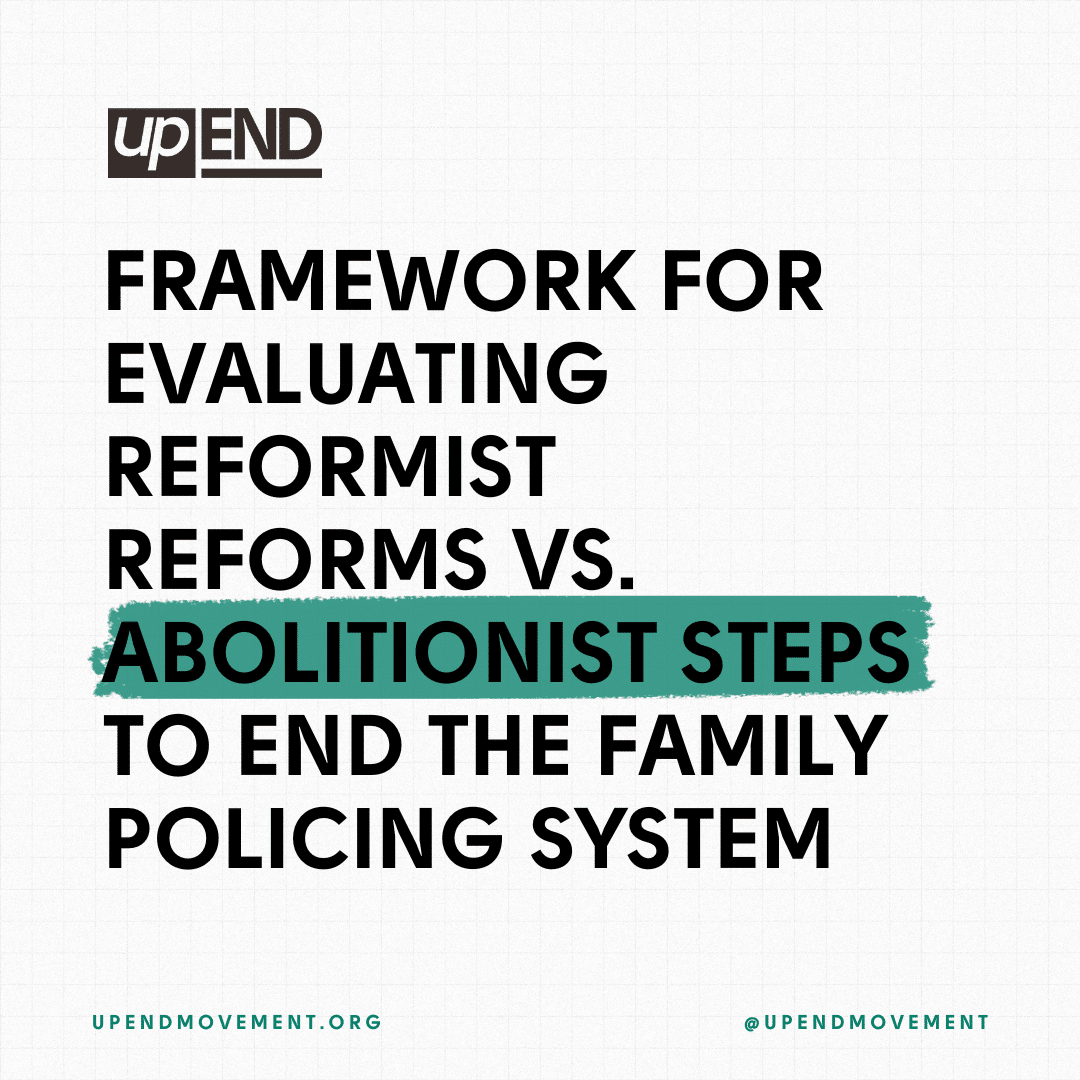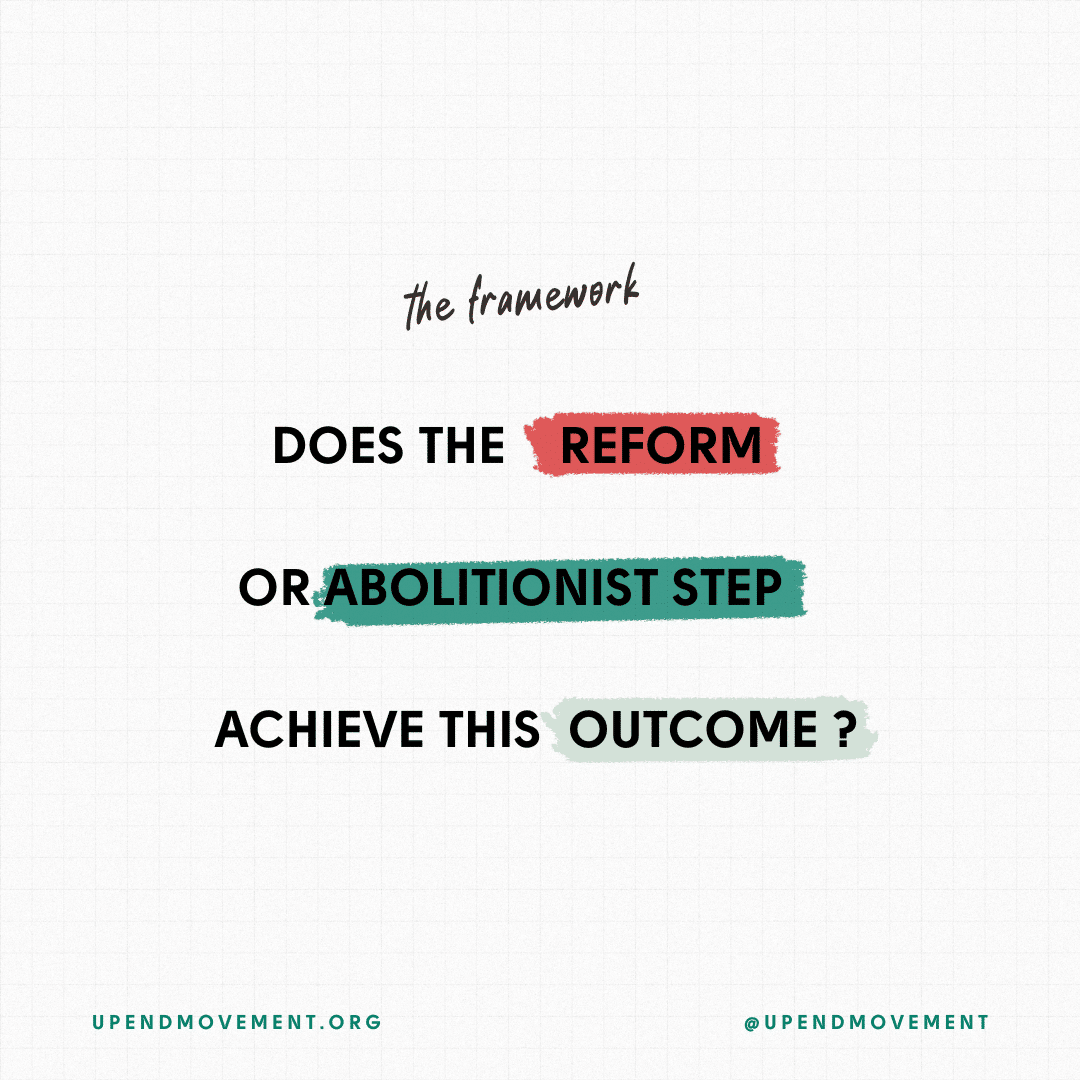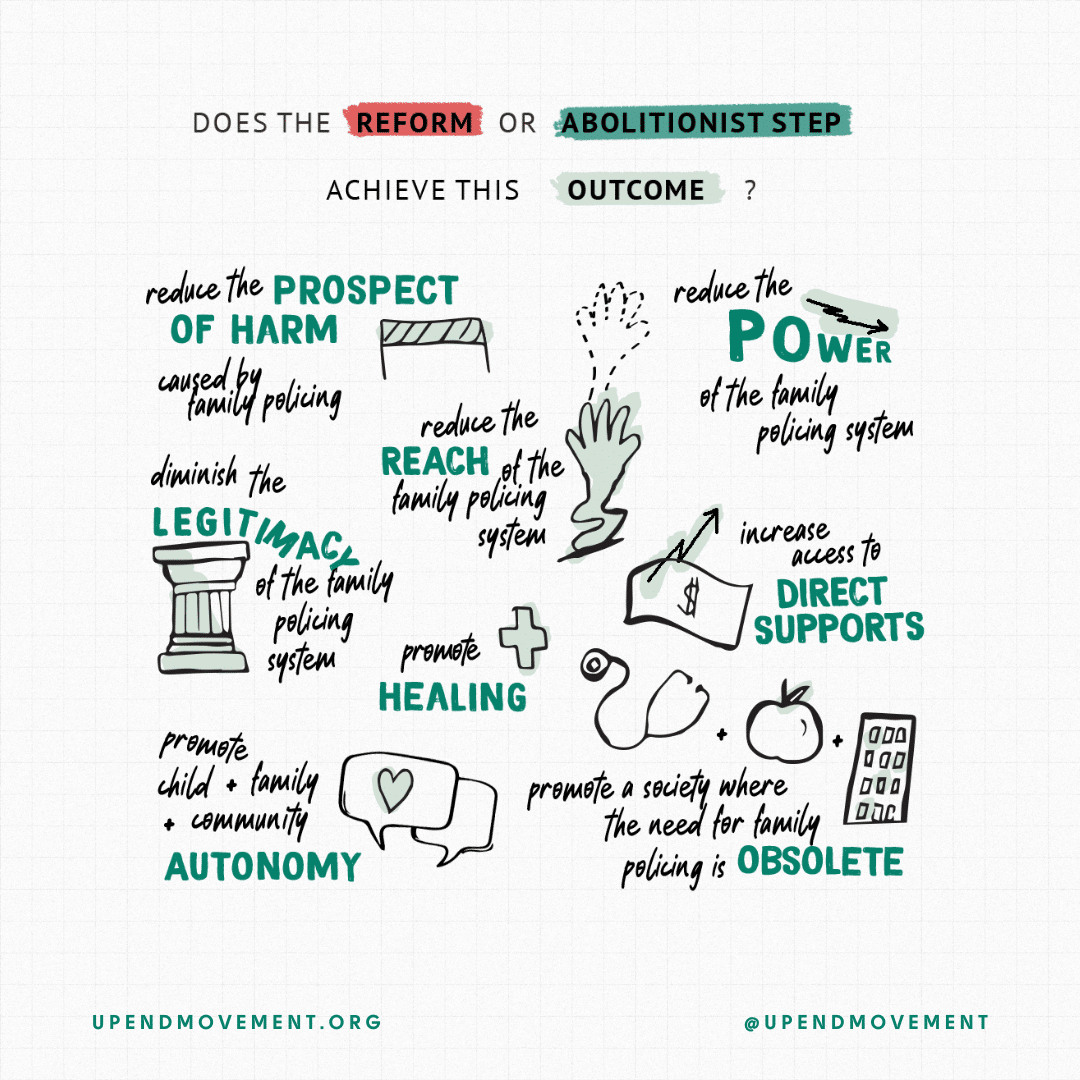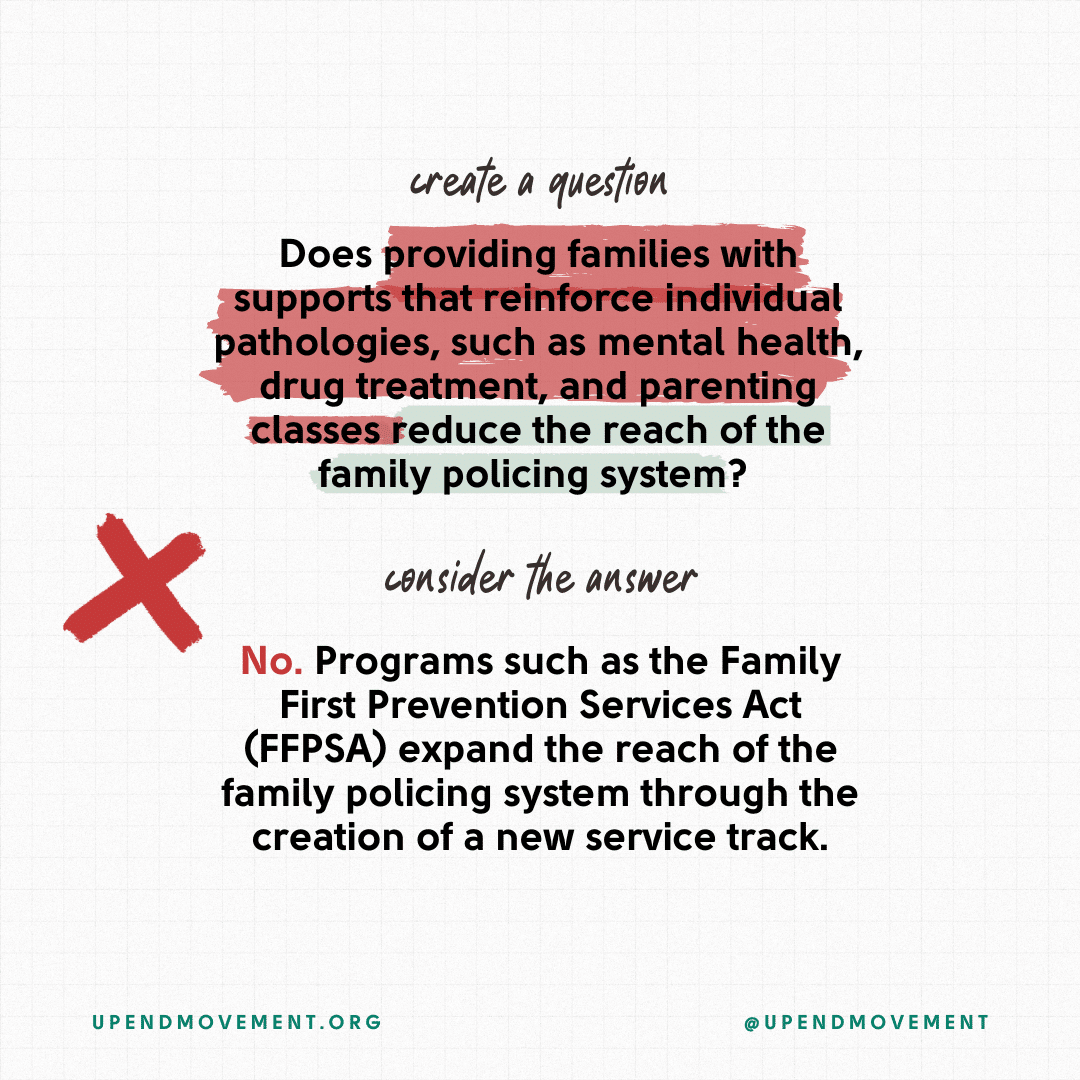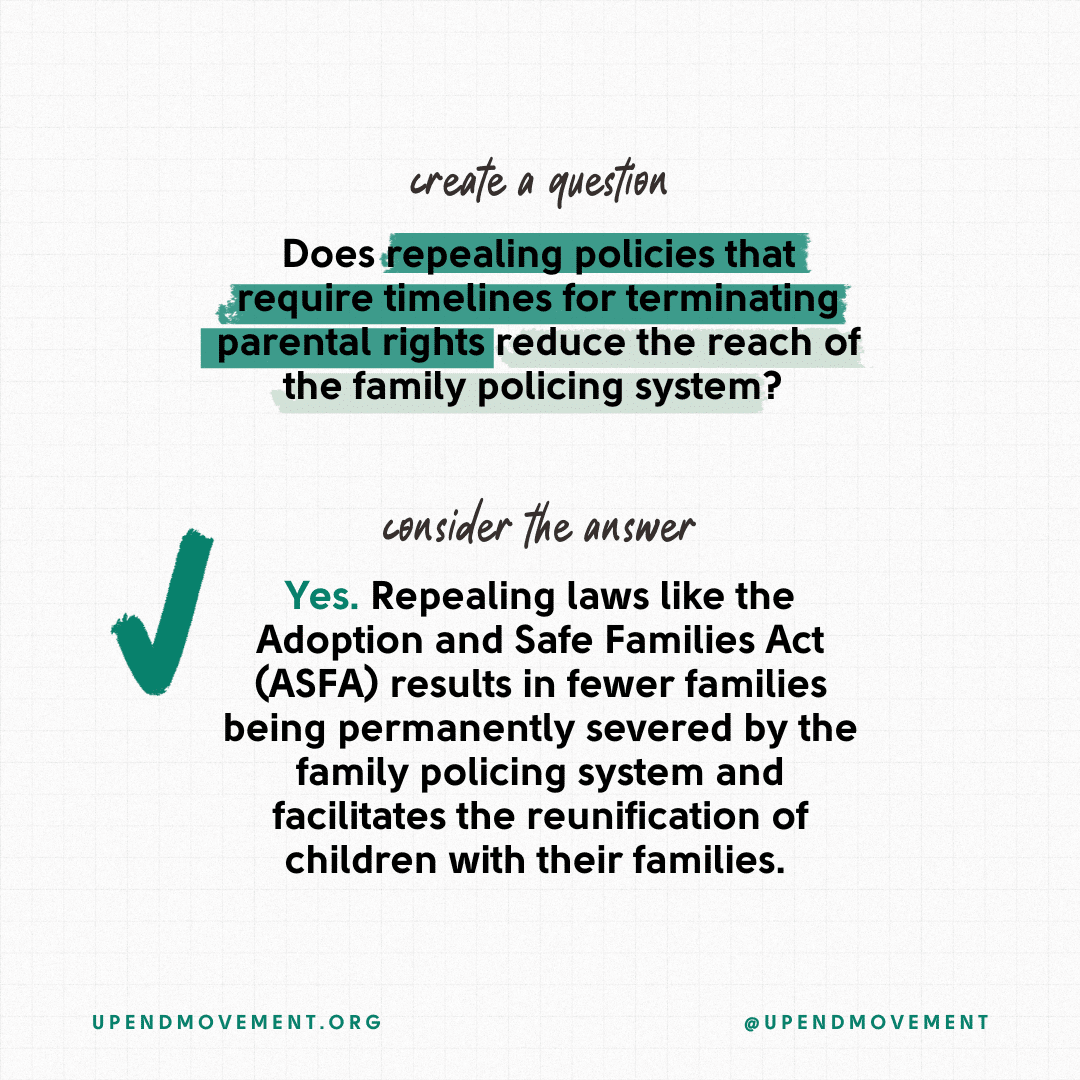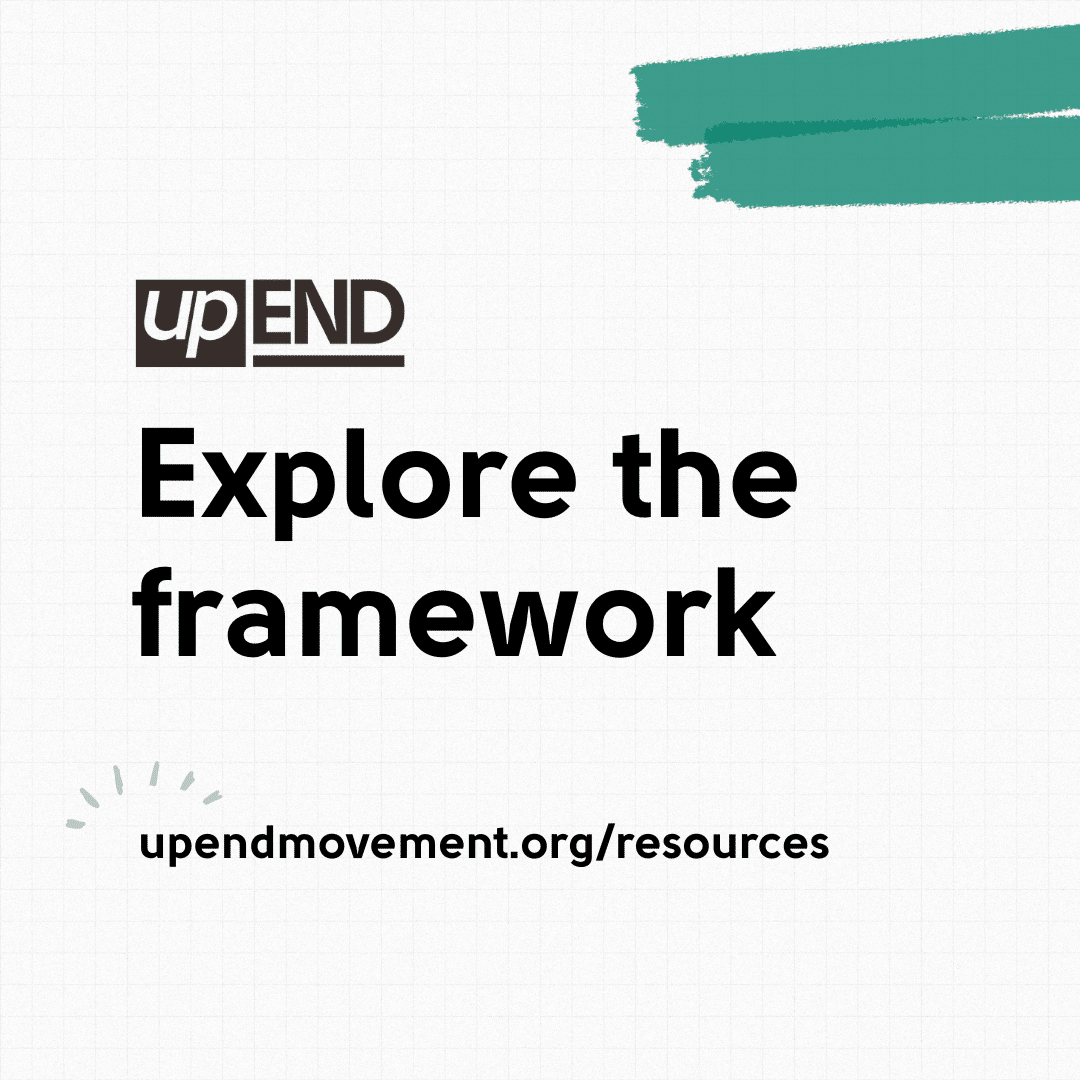About the Framework
The questions in this document provide a guide to analyze whether proposed reforms to family policing further entrench the family policing system or move us closer to abolition of family policing. The questions we ask are a reflection of the world we want to build—one without family policing and one where children are safer.
We seek to: end the reach of the family policing system; end the prospect of harm caused by family policing; take away the power of the family policing system; and diminish the legitimacy of the family policing system, while also seeking to affirm child, family, and community autonomy; promote healing for children, families, and communities; increase access to direct supports; and create a society where the need for a family policing system is obsolete.
This framework is adapted from the work of Critical Resistance, who developed a framework for evaluating proposed reforms to policing. While the child welfare system is not always included in larger conversations about police and prison abolition, we understand family policing to be a key component of the carceral state. The reforms in this guide are not as well-known as some of the major reforms to policing; yet just as reforms to policing fatally misunderstand the problem of policing, so do many of the major proposed reforms to child welfare.
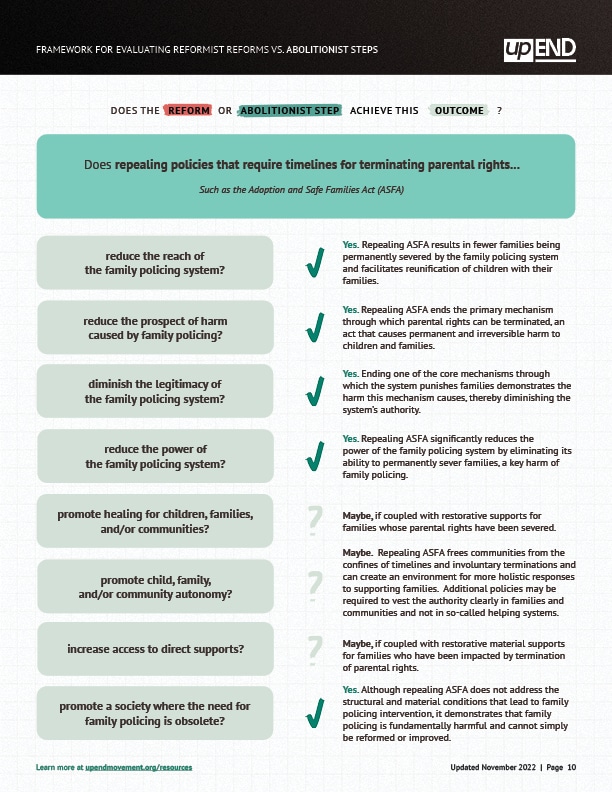
“Reforms are ineffective at combating racism and harm in part because they do not intend to, but also because they begin with the wrong presumptions.”


In this essay, authors Maya Pendleton and Alan Dettlaff give essential context to the framework tool and invite you to take abolitionist steps to build a better world.
Put the framework into practice
- Propose an idea (reform or abolitionist step)
- Ask if your proposal achieves desired outcomes
- Download a PDF with your responses
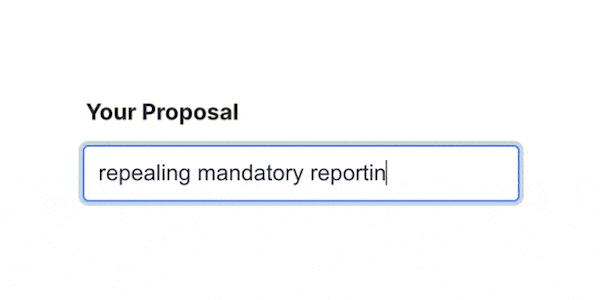
Understanding the difference between reforms and abolitionist steps
upEND contributor Maya Pendleton gives a quick explainer of the difference between reforms and abolitionist steps.

